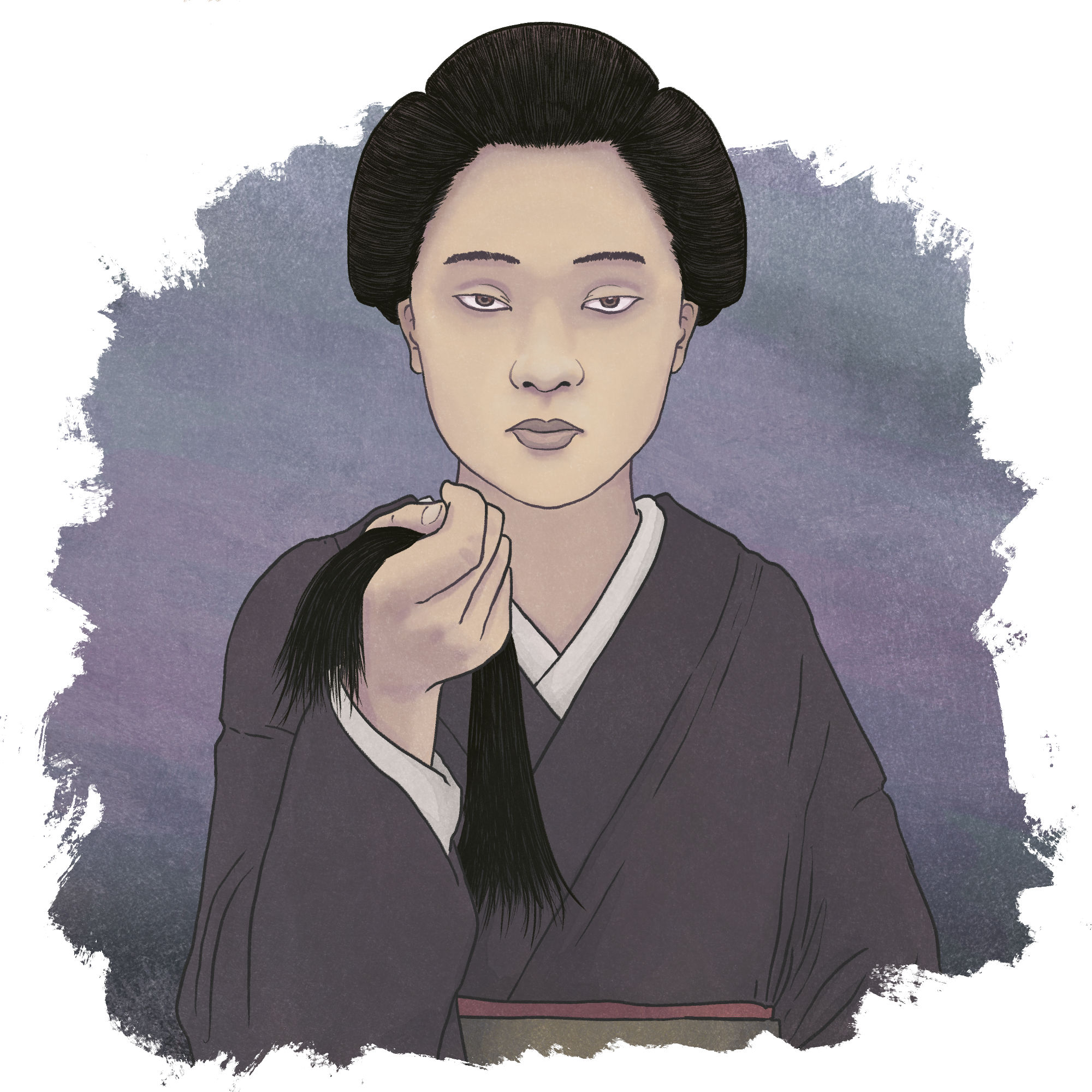Tonight’s story deals with a shiryō. We’ve seen several stories so far about ikiryō, where the emotions of a living person form into a malevolent spirit. A shiryō is the same sort of thing, only they are formed from the emotions of a dead person, rather than a living one.
I find the ending of this story amusing. The husband, embarrassed or ashamed at having been called out by his wife, straight up denies the facts until forced to admit them when she presents her proof. And her reaction is essentially, “Come on man, do the right thing.” You can almost feel her exasperation. She’s the one who get’s haunted, she’s the one who has to pry the truth out of her husband, and she’s the one who has to get him to take care of his old business. I think all probably know somebody like that, so it’s easy to relate to her.
The Ghost of Kuno’s Mistress
Two or three generations ago, around the An’ei era (1772-1781), an acquaintance of mine named Kuno took a wife.
One time, Kuno went out for an evening tea party leaving his wife alone in the bedroom. The moon shone brightly, illuminating the paper sliding doors. Just then, a strange shadow was cast on them.
The wife called out, “Who’s there?”
There was no answer, so she got up and opened the sliding doors to find a woman about to step down from the veranda. She chased after her.
“Who are you?” she demanded, and she grabbed the woman’s hair bun.
“I am Yuka,” replied the woman. Then she vanished, leaving her hair behind. The wife put the hair away, and when her husband came home in the small hours of the morning she asked him, “Before I married you, you had a mistress, didn’t you?”
Since they had only been married for a short time, he denied it: “There was absolutely no such person!”
“Don’t speak that way. Wasn’t there a servant named Yuka…?” she asked.
The husband was shocked. “Why are you asking about such things?”
The wife told him all about what had previously occurred, and she brought out the lock of hair to show him.
“Please perform a proper funeral for the departed,” she pleaded.
The husband accepted this as reasonable and held a memorial service for her.

